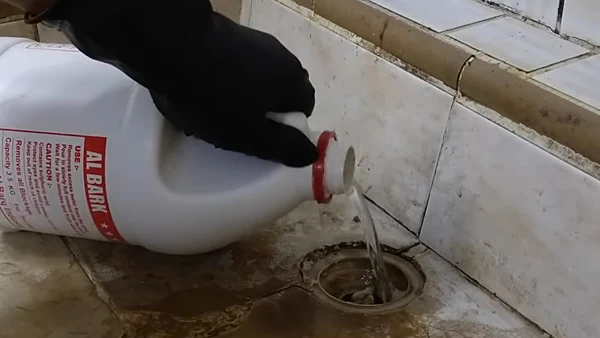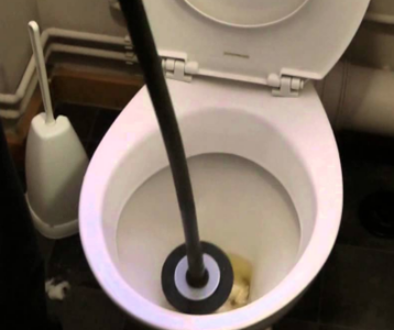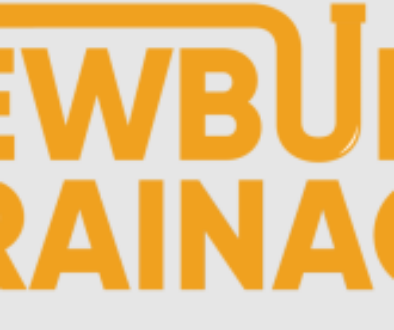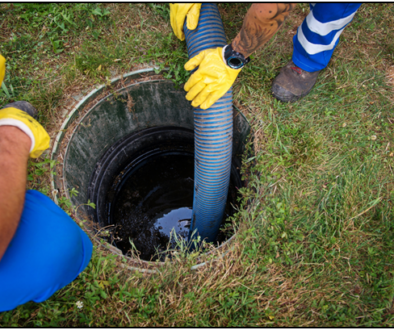Can I Use Hydrochloric Acid To Unblock A Drain
Picture this: you’re standing in your bathroom, splish-splashing in a pool of water that just won’t drain. Frustrating, right? But fear not, my curious friend, for you’ve come to the right place! Today, we’re going to tackle a question on many homeowners’ minds: can I use hydrochloric acid to unblock a drain? Let’s dive in and find out!
Ah, hydrochloric acid, also known as muriatic acid. It sounds like something out of a science experiment, but can it actually help save the day when your drain is clogged? Well, here’s the scoop: hydrochloric acid is a potent chemical often used for cleaning and dissolving tough substances. It can be effective in unblocking certain drains, but hold your horses, we need to proceed with caution.
Now, before you grab your lab coat and goggles, let’s talk safety. Hydrochloric acid is a powerful acid and can be hazardous if mishandled. To protect yourself and your plumbing, it’s crucial to follow proper safety protocols and dilute the acid properly. Safety first, my friend! So, put on your safety glasses, buckle up, and let’s explore the intriguing world of drain unblocking with hydrochloric acid.

Can I Use Hydrochloric Acid to Unblock a Drain?
When faced with a clogged drain, it’s natural to explore various DIY methods to clear the blockage. One common question that arises is whether hydrochloric acid can be used to unclog drains. In this article, we will delve into the effectiveness and safety of using hydrochloric acid for this purpose. Before attempting any DIY solutions, it’s important to understand the potential risks and limitations involved.
The Use of Hydrochloric Acid for Drain Unclogging: What You Need to Know
Hydrochloric acid, also known as muriatic acid, is a highly acidic and corrosive substance that is commonly used for industrial purposes. It is effective in dissolving certain materials, including organic matter, that may be causing the blockage in your drains. However, it is crucial to exercise caution and take necessary precautions when considering using hydrochloric acid for drain unclogging.
1. The Potential Hazards and Risks
Using hydrochloric acid to unclog drains poses several hazards and risks that cannot be overlooked. First and foremost, hydrochloric acid is extremely corrosive and can cause severe burns and damage to the skin, eyes, and respiratory system if not handled properly. It can also release toxic fumes that can be harmful if inhaled. Moreover, the acid can react with certain materials such as metal pipes, leading to further damage or leaks.
If you choose to use hydrochloric acid, it is imperative to follow safety guidelines such as wearing protective equipment like gloves and goggles, ensuring proper ventilation in the area, and being cautious about the contact of the acid with your skin or any other surfaces.
Considering the potential risks involved, it is advisable to explore alternative methods before resorting to hydrochloric acid for unclogging drains.
2. Alternative Methods for Unclogging Drains
Thankfully, there are numerous alternative methods that are safer and equally effective for unclogging drains. One popular method is the use of a plunger, which creates a vacuum and applies pressure to dislodge the blockage. Another option is to use a drain snake or auger, which can physically break up the clog and clear the passage.
Additionally, you can try using a mixture of baking soda and vinegar to create a chemical reaction that helps break down the debris. Regular preventive maintenance, such as pouring boiling water down the drain on a regular basis, can also help prevent blockages from occurring in the first place.
By exploring these alternative methods, you can effectively clear your drains without exposing yourself to the risks associated with hydrochloric acid.
The Bottom Line: Safety First, Explore Alternatives
While hydrochloric acid may have the potential to unclog drains, the risks and hazards associated with its use outweigh its benefits. It is crucial to prioritize safety and explore alternative methods that are equally effective without the potential risks. By following proper preventive maintenance and utilizing tools like plungers or drain snakes, you can successfully clear drain blockages while keeping yourself and your home safe.
Benefits of Alternative Drain Unclogging Methods
When it comes to eliminating drain blockages, alternative methods provide several benefits:
1. Safety:
Unlike hydrochloric acid, alternative methods such as using a plunger or drain snake do not pose significant safety risks, minimizing the potential for accidents or harm to yourself or your property.
2. Environmentally Friendly:
Many alternative methods are eco-friendly, as they do not involve the use of harsh chemicals that can harm the environment or your plumbing system in the long run.
3. Cost-Effective:
Most alternative methods are cost-effective and readily available. Plungers and drain snakes, for example, are affordable and can be used multiple times.
4. Versatility:
Alternative methods can be used for a wide range of drain blockages, making them a versatile solution that can be applied in various situations.
5. Preventive Measures:
By adopting regular preventive maintenance practices, such as pouring boiling water down the drain or using natural solutions like baking soda and vinegar, you can help prevent future blockages from occurring.
Tips for Preventing Drain Blockages
Prevention is key when it comes to drains. Here are some tips to keep your drains clear and functioning properly:
1. Dispose of Waste Properly:
Avoid dumping grease, food scraps, or other waste materials down the drain, as they can accumulate and cause blockages.
2. Use Drain Covers:
Installing drain covers or strainers can effectively catch hair, food particles, and other debris before they enter the drain, preventing clogs.
3. Regular Cleaning:
Regularly clean your drains with natural cleaners like baking soda and vinegar or use commercial drain cleaners to keep them free from buildup.
4. Regular Maintenance:
Perform regular maintenance activities such as pouring boiling water down the drain to help keep them clear and prevent blockages from occurring.
5. Seek Professional Help:
If you encounter persistent or severe drain blockages, it is advisable to seek the assistance of a professional plumber who can diagnose the underlying issue and provide an appropriate solution.
In Conclusion
While hydrochloric acid may be effective at unclogging drains, its potential risks and hazards make it an unsuitable choice for DIY drain unclogging. It is crucial to prioritize safety and explore alternative methods that are both effective and safer for you and your home. By adopting preventive measures and utilizing tools like plungers or drain snakes, you can effectively clear drain blockages and maintain the proper functioning of your plumbing system.
Can I Use Hydrochloric Acid to Unblock a Drain?
- Hydrochloric acid can be used to unblock a drain, but it can be dangerous if not handled properly.
- It is important to wear protective gear such as gloves and safety goggles when using hydrochloric acid.
- Hydrochloric acid should be used in a well-ventilated area to avoid inhaling the fumes.
- Never mix hydrochloric acid with other chemicals, as it can produce toxic gases.
- It is advisable to try alternative methods, such as using a plunger or a drain snake, before resorting to hydrochloric acid.
Frequently Asked Questions
In this section, we will address some common questions related to unblocking drains and the use of hydrochloric acid.
Can I use hydrochloric acid to unblock a drain?
While hydrochloric acid is a powerful chemical often used for various purposes, it is not recommended for unblocking drains. Hydrochloric acid is highly corrosive and can cause severe damage to pipes, especially if used improperly. It is best to leave drain unblocking to professionals who use safe and effective methods.
Instead of hydrochloric acid, it is advisable to opt for natural methods or mild drain cleaners specifically designed for unclogging pipes. These products are safer for both your pipes and the environment.
What are the risks of using hydrochloric acid to unblock a drain?
Using hydrochloric acid to unblock a drain poses several risks. Firstly, it is highly corrosive and can damage not only the pipes but also other materials it comes into contact with, such as clothing, skin, and surfaces. Additionally, the fumes produced by hydrochloric acid can be harmful when inhaled, causing respiratory issues.
Moreover, if hydrochloric acid is not handled correctly or mixed with other chemicals, it can lead to dangerous reactions and even explosions. Therefore, it is always best to rely on safer alternatives and contact a professional plumber if you are unsure how to unclog a drain.
What are some safe alternatives to unblock a drain?
There are several safe and effective alternatives to unblock a drain without using hydrochloric acid. One option is to use a plunger, which creates suction and can dislodge minor blockages. Another method is to pour boiling water down the drain, followed by a mixture of baking soda and vinegar. This natural combination creates a fizzy reaction that can help dissolve obstructions.
If these methods don’t work, you can try using a drain snake or auger to physically remove the blockage. These tools are readily available at most home improvement stores. Remember to follow the instructions carefully and take appropriate safety precautions when using any plumbing tools.
When should I call a professional plumber?
If you have tried using safe alternatives and are still unable to unblock your drain, it is time to call a professional plumber. They have the knowledge, experience, and tools to identify and resolve more complex drain blockages. Trying to tackle a stubborn clog on your own may lead to further damage or frustration.
Professional plumbers can also offer advice on preventive measures to avoid future drain blockages. Regular maintenance and timely repairs can help keep your drains flowing smoothly and prevent the need for costly repairs in the future.
How can I prevent drain blockages in the first place?
Preventing drain blockages is easier and more cost-effective than dealing with clogs after they occur. Here are some tips to keep your drains clear:
1. Avoid pouring grease, oil, or food scraps down the drain.
2. Use drain covers or strainers to catch hair and other debris.
3. Regularly clean your drains by flushing them with boiling water.
4. Avoid flushing large amounts of toilet paper at once.
5. Do not use drains as garbage disposals; dispose of waste properly.
By following these simple steps, you can minimize the risk of drain blockages and ensure a smooth and efficient drainage system in your home.
Summary
Using hydrochloric acid to unblock a drain may seem tempting, but it can be dangerous.
When hydrochloric acid comes into contact with skin, it can cause burns and irritation. It can also damage your pipes and harm the environment. Instead, try using safer alternatives like a plunger or a drain snake. If that doesn’t work, it’s best to call a professional plumber to avoid any accidents. Remember, safety first!



